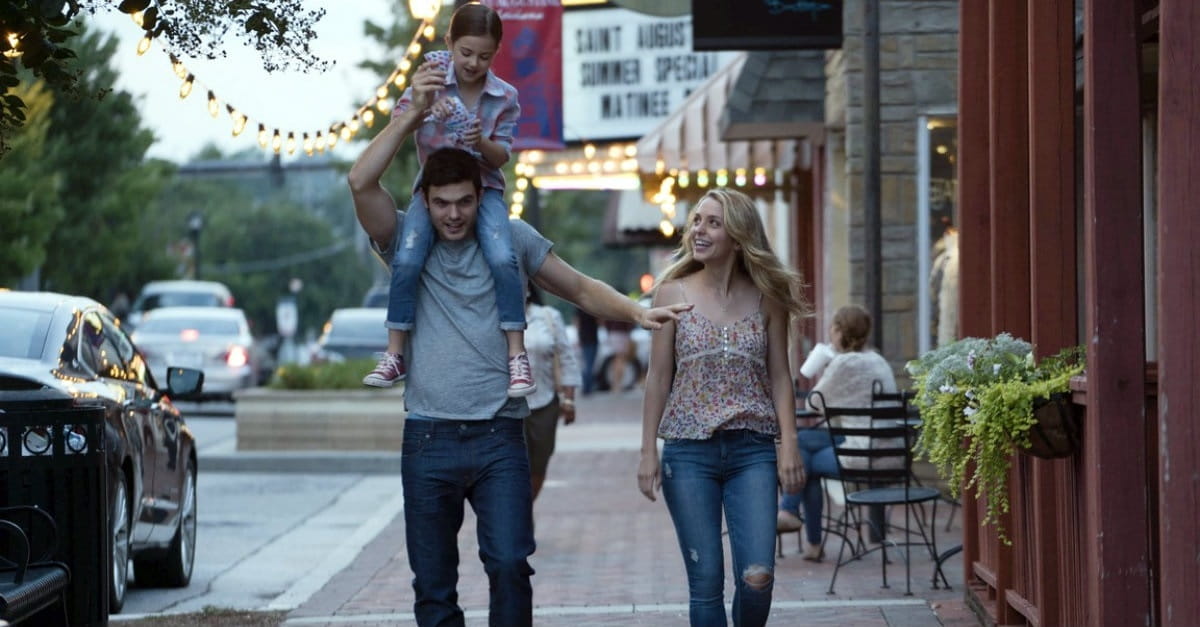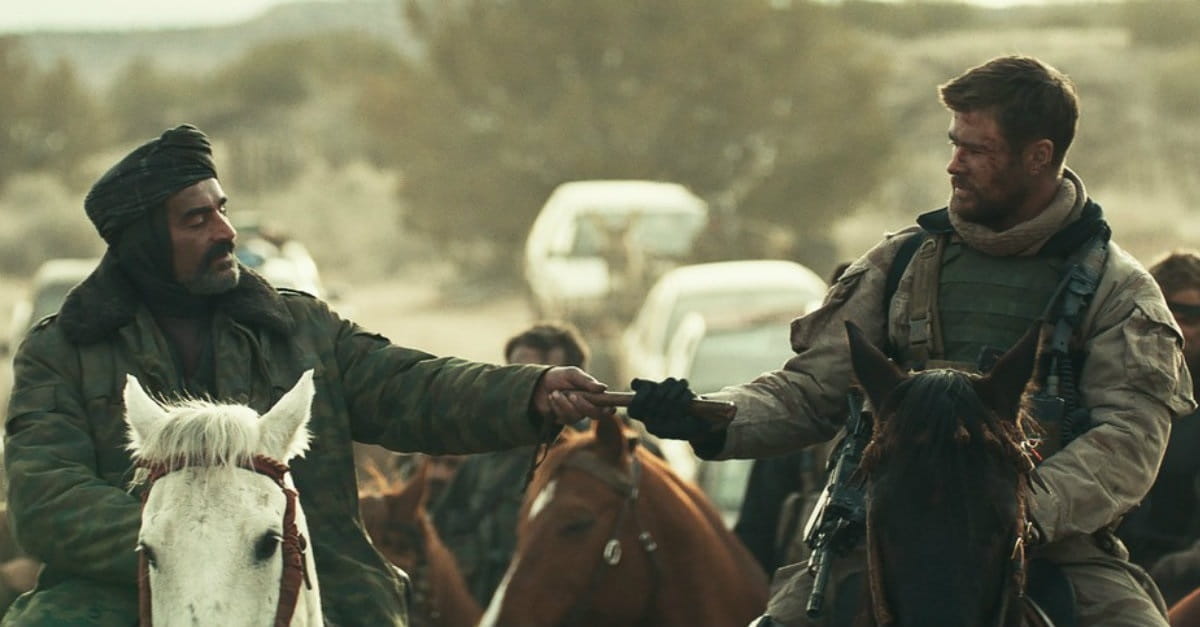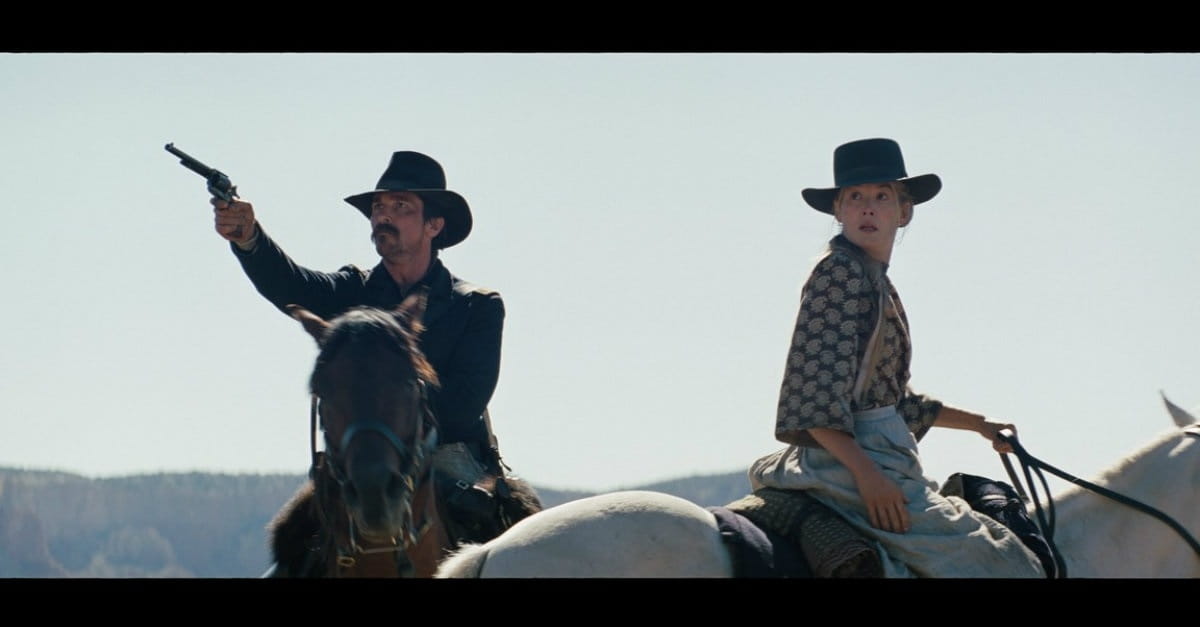Truth Feels Contrived in "The Boys Are Back"
- Jeffrey Huston Crosswalk.com Contributing Writer
- Updated Nov 06, 2009

Release Date: September 25, 2009 (limited); wider through October
Rating: PG-13 (for language, sexual language, and thematic elements)
Genre: Drama, Adaptation
Run Time: 104 min.
Director: Scott Hicks
Cast: Clive Owen, Nicholas McAnulty, George MacKay, Emma Booth, Laura Fraser
It's not impossible for Hollywood to take a true story and actually do it justice, but it's rare.
The natural tendency is to conform the complexities of real-life into a three-act structure with familiar dramatic beats, in part because it's safe but also for practical reasons (you have to cram weeks, months or years into two hours). Some films are able to capture the essence of truth into this compressed medium, while most others are just pretenders. Despite admirable intentions, The Boys Are Back is just a pretender.
It's a bit shocking, actually, to know this is based on a personal memoir because the melodramatic adaptation feels entirely contrived, even blatantly manipulative. Clive Owen plays Joe Warr, an Australian on his second marriage with one son from each. The second go-around has definitely been the right one as Joe and his wife Katy live in pure marital bliss—well, in the little we see of it until she suddenly, tragically dies, leaving Joe alone with their six-year-old Artie (Nicholas McAnulty).
In the midst of his grief, Joe must come to terms with the lack of connection he has not only with Artie but also the son from his first marriage—Harry—who now lives in London with his mother. Feeling guilt over both, Joe goes to great lengths to reconnect and become the father he wants to be, and knows he must be. All well-and-good, and certainly a journey worth exploring, but wow, this one is a real head-scratcher.
Joe's approach to ingratiating himself with his kids comes in the form of a "refrigerator magnet" epiphany; he sees a phrase spelled out in colorful plastic letters that reads, simply, "JUST SAY YES". That edict becomes his parenting mantra, saying "yes" to any request his boys make; life, after all, is too short to say "no", right? Want to play soccer in the house? Go for it. Eat ketchup with noodles for dinner? Bon appétit. Leave sons home alone for two days while Dad's away? No problem. Are you feeling the warm-fuzzies yet?
Apparently the local mothers aren't who, as they see Joe's devil-may-care approach, are narrowly portrayed like uptight shrews as they gasp and critique his instincts—his mother-in-law especially so, who exists primarily to give Joe the proverbial killjoy speech about how kids need structure and discipline.
The reality is that the women are actually right even if their spirit is not, yet the film's backward perspective would have us feel otherwise. Laura (Emma Booth), the only supportive neighbor, also happens to be the most attractive single one and, predictably, she and Joe become involved—although a bit too quickly after Katy's passing to feel right, especially given how Joe still sees visions of his dead wife and has full conversations with her (definitely the film's most schmaltzy stroke).
This is the core fundamental problem: The Boys Are Back doesn't evolve or substantiate either its narrative progression or emotional turns; it just makes them. We're given all of the big dramatic moments—love, joy, death, grief, aftermath, etc.—but without any development. We're supposed to take each turn at face value without ever really knowing these people beyond the generic life moments portrayed. It's as if the filmmakers are saying, "Here's the tragic story of a widower—now feel!"
Worse yet, it attempts to access our emotions through one of the most unhealthy parenting tactics ever: "JUST SAY YES". Maybe I'm just a stick-in-the-mud, but the film promotes this credo with too much conviction. The oldest son even swears with impunity (including the F-word) without Dad so much as batting an eye. Now granted, it doesn't offer sentimental outcomes to all of these freedoms. Their actions do, in some cases, create difficulties of their own, especially when Joe leaves the boys home alone for two days (that was one "yes" too far, apparently).
Even so, the negative fallout to that scenario is a real stretch. The setup to the disaster that occurs while Dad's away (such as it is—and it could've been worse, considering) is a weakly constructed cause-and-effect. As with everything else in the movie, an improbable series of events are cobbled together so as to elicit a major dramatic crisis, rushing through the details in order to quickly engineer "a moment." I can't accuse the film of being overly-sentimental, but it's paradoxically lazy while trying too hard.
The most consistent example of this faulty pattern is six-year-old Artie and his inability to process his mother's death, which is as peculiar as Joe's "JUST SAY YES" response. While never established as having any developmental problems or form of Autism, Artie's grieving process is oddly distant, indifferent, and even cold. Honestly, it's just plain weird (and makes his angry outbursts feel forced), though it fits into a movie that consistently expects us to respond emotionally to things that never fully make sense.
There must've been a core resonance to Joe Warr's original memoir, but somewhere along the way it got lost in translation. Clive Owen is more-than-up to the task of the role's emotional demands (indeed, he delivers) but the script and direction are not, at all. For being based on a true story, The Boys Are Back feels horribly false. It's real-life drama as only Hollywood constructs it.
CAUTIONS:
- Drugs/Alcohol Content: Drinking, some underage partying.
- Language/Profanity: A wide range of profanities used, though not constantly, including a few expressions of the Lord's name in vain and one F-word.
- Sexual Content/Nudity: A man makes an explicit reference to masturbation.
- Violence/Other: A fist-fight in a bar.
Jeffrey Huston is a film director, writer and producer at Steelehouse Productions in Tulsa, Okla. He is also cohost of "Steelehouse Podcast," along with Steelehouse Executive Creative Mark Steele, where each week they discuss God in pop culture.
To listen to the weekly podcast, please visit www.steelehouse.com or click here. You can also subscribe to "Steelehouse Podcast" through iTunes.














